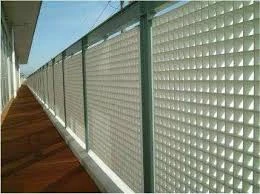
-
 Afrikaans
Afrikaans -
 Albanian
Albanian -
 Amharic
Amharic -
 Arabic
Arabic -
 Armenian
Armenian -
 Azerbaijani
Azerbaijani -
 Basque
Basque -
 Belarusian
Belarusian -
 Bengali
Bengali -
 Bosnian
Bosnian -
 Bulgarian
Bulgarian -
 Catalan
Catalan -
 Cebuano
Cebuano -
 China
China -
 China (Taiwan)
China (Taiwan) -
 Corsican
Corsican -
 Croatian
Croatian -
 Czech
Czech -
 Danish
Danish -
 Dutch
Dutch -
 English
English -
 Esperanto
Esperanto -
 Estonian
Estonian -
 Finnish
Finnish -
 French
French -
 Frisian
Frisian -
 Galician
Galician -
 Georgian
Georgian -
 German
German -
 Greek
Greek -
 Gujarati
Gujarati -
 Haitian Creole
Haitian Creole -
 hausa
hausa -
 hawaiian
hawaiian -
 Hebrew
Hebrew -
 Hindi
Hindi -
 Miao
Miao -
 Hungarian
Hungarian -
 Icelandic
Icelandic -
 igbo
igbo -
 Indonesian
Indonesian -
 irish
irish -
 Italian
Italian -
 Japanese
Japanese -
 Javanese
Javanese -
 Kannada
Kannada -
 kazakh
kazakh -
 Khmer
Khmer -
 Rwandese
Rwandese -
 Korean
Korean -
 Kurdish
Kurdish -
 Kyrgyz
Kyrgyz -
 Lao
Lao -
 Latin
Latin -
 Latvian
Latvian -
 Lithuanian
Lithuanian -
 Luxembourgish
Luxembourgish -
 Macedonian
Macedonian -
 Malgashi
Malgashi -
 Malay
Malay -
 Malayalam
Malayalam -
 Maltese
Maltese -
 Maori
Maori -
 Marathi
Marathi -
 Mongolian
Mongolian -
 Myanmar
Myanmar -
 Nepali
Nepali -
 Norwegian
Norwegian -
 Norwegian
Norwegian -
 Occitan
Occitan -
 Pashto
Pashto -
 Persian
Persian -
 Polish
Polish -
 Portuguese
Portuguese -
 Punjabi
Punjabi -
 Romanian
Romanian -
 Russian
Russian -
 Samoan
Samoan -
 Scottish Gaelic
Scottish Gaelic -
 Serbian
Serbian -
 Sesotho
Sesotho -
 Shona
Shona -
 Sindhi
Sindhi -
 Sinhala
Sinhala -
 Slovak
Slovak -
 Slovenian
Slovenian -
 Somali
Somali -
 Spanish
Spanish -
 Sundanese
Sundanese -
 Swahili
Swahili -
 Swedish
Swedish -
 Tagalog
Tagalog -
 Tajik
Tajik -
 Tamil
Tamil -
 Tatar
Tatar -
 Telugu
Telugu -
 Thai
Thai -
 Turkish
Turkish -
 Turkmen
Turkmen -
 Ukrainian
Ukrainian -
 Urdu
Urdu -
 Uighur
Uighur -
 Uzbek
Uzbek -
 Vietnamese
Vietnamese -
 Welsh
Welsh -
 Bantu
Bantu -
 Yiddish
Yiddish -
 Yoruba
Yoruba -
 Zulu
Zulu
Fiberglass Solutions for Thermal Insulation in Nuclear Power Applications
The Role of Fiberglass Products in Thermal and Nuclear Power
Fiberglass, a composite material made from glass fibers and resin, has found significant applications in various industries, including thermal and nuclear power generation. Its unique properties make it an ideal choice for components that must withstand extreme conditions, resist corrosion, and provide effective thermal insulation.
Advantages of Fiberglass in Power Generation
One of the primary advantages of fiberglass is its lightweight nature. Compared to traditional materials like metals, fiberglass is significantly lighter, which reduces the overall load on structures. This property is crucial in the construction of power plants, where every kilogram counts, especially in seismic zones. The reduced weight also translates to lower transportation and installation costs, making fiberglass a cost-effective alternative.
Additionally, fiberglass boasts excellent corrosion resistance. In thermal and nuclear power plants, components are often exposed to harsh chemicals and extreme environmental conditions. Corrosion can lead to structural failures and increased maintenance costs. Fiberglass’s ability to withstand these conditions, without the need for elaborate protective coatings, ensures longevity and reliability. This characteristic is particularly beneficial in cooling systems, where water, chemicals, and high temperatures can lead to rapid degradation of metal components.
Thermal Insulation Properties
Another critical requirement in power generation is thermal insulation. Effective thermal management is vital in both thermal and nuclear power plants to optimize efficiency and maintain safety. Fiberglass provides exceptional thermal resistance due to its low thermal conductivity. It is commonly used in insulation blankets, pipe insulation, and thermal barriers, helping to minimize heat loss and improve overall energy efficiency.
In nuclear power plants, where precise temperature control is paramount for safety, fiberglass insulation can help maintain the required thermal profiles, preventing overheating in critical areas. This capability contributes not only to operational efficiency but also to the safety of the facility and its personnel.
fiberglass products for thermal and nuclear power

Acoustic Properties
In addition to thermal and corrosion-resistant properties, fiberglass also offers sound-dampening benefits. Power generation facilities, especially thermal plants, can be quite noisy, emitting sounds from machinery and steam systems. Fiberglass insulation can significantly reduce noise emissions, creating a more pleasant and safer working environment for the personnel while alleviating disturbances to nearby communities.
Applications in Nuclear Power
Fiberglass products have specific applications in nuclear power generation. One notable application is in containment structures and piping systems, where the durability and shock resistance of fiberglass are crucial. Additionally, fiberglass is used in fabrication of tanks for storing various liquids, ensuring that the integrity of the tank is maintained without risk of leakage over time.
Innovations in fiberglass technology are also paving the way for advanced composite materials that combine fiberglass with other elements to enhance its properties even further. These advancements could lead to stronger, lighter, and more efficient products that meet the demands of the ever-evolving energy landscape.
Conclusion
In conclusion, fiberglass products play a pivotal role in the thermal and nuclear power industries. Their lightweight, corrosion-resistant, and thermal insulation properties make them essential for maintaining the efficiency, safety, and sustainability of power generation facilities. As the energy sector continues to innovate and seek more efficient solutions, the applications and development of fiberglass products will undoubtedly expand, contributing to a more sustainable energy future. With growing global energy demands and a push for cleaner and safer energy resources, the significance of materials like fiberglass cannot be overstated.
Latest news
-
Exploring the Benefits of Top Hammer Drifter Rods for Enhanced Drilling PerformanceNewsJun.10,2025
-
High-Precision Fiberglass Winding Machine for GRP/FRP Pipe Production – Reliable & Efficient SolutionsNewsJun.10,2025
-
FRP Pipes & Fittings for Shipbuilding - Corrosion-Resistant & LightweightNewsJun.09,2025
-
Premium FRP Flooring Solutions Durable & Slip-ResistantNewsJun.09,2025
-
Premium Fiberglass Rectangular Tanks Durable & Lightweight SolutionNewsJun.09,2025
-
Tapered Drill String Design Guide Durable Performance & UsesNewsJun.09,2025









